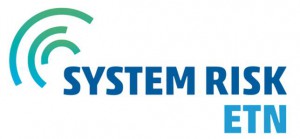System-Risk is a Marie-Skłodowska-Curie European Training Network which aims on developing and implementing a systems approach for large-scale flood risk assessment and management and provides a framework for training and career development of 15 Early Stage Researchers (ESRs). In collaboration with the Royal Meteorological Institute (KNMI), FutureWater is the hosting institute for ESR1. This ESR focuses on the “Development of Future Weather techniques for flood risk assessment”. The ESR focuses on the interplay between meteorological and hydrological factors leading to extreme floods under present and future climate. It is expected that the ESR will develop methods and tools for deriving consistent, large-scale flood scenarios and quantifying their uncertainty. The developed methods and tools will be validated for three case-study basins.
System-Risk is a Marie-Skłodowska-Curie European Training Network which aims on developing and implementing a systems approach for large-scale flood risk assessment and management and provides a framework for training and career development of 15 Early Stage Researchers (ESRs).
 Particularly, national and regional policy development adhering to the solidarity principle anchored in the European Flood Directive as well as the insurance industry require tools to assess and manage flood risk at large scales, from the larger river basin to the European scale. Yet, the majority of flood research has centered on small- to meso-scale catchments and, to date, such requirements have usually been addressed by piecing together small-scale solutions. Today, increased data availability, new numerical algorithms and dramatically higher computer performance enable large-scale analyses and modelling which were not feasible a few years ago.
Particularly, national and regional policy development adhering to the solidarity principle anchored in the European Flood Directive as well as the insurance industry require tools to assess and manage flood risk at large scales, from the larger river basin to the European scale. Yet, the majority of flood research has centered on small- to meso-scale catchments and, to date, such requirements have usually been addressed by piecing together small-scale solutions. Today, increased data availability, new numerical algorithms and dramatically higher computer performance enable large-scale analyses and modelling which were not feasible a few years ago.
System-Risk performs leading-edge research with spotlights on three essential pillars of flood risk research:
- Risk chain: considering the complete risk chain from the Sources through the Pathways to the Receptors and Consequences.
- Interactions: augmenting the ‘Source-Pathway-Receptors and Consequences‘ model by putting interactions centre stage and, in this way, replacing the traditional linear approach of the risk chain by a more realistic approach with interdependent linkages between physical and societal processes which finally shape the spatio-temporal flood risk.
- Temporal dynamics: investigating the time-varying nature of flood risk and its components on different time scales as for instance hours to days when flood defense failures change flood probabilities, months to years when people learn from damaging floods and improve private precaution and decades to centuries when human settlements in floodplains evolve.
System-Risk is composed of 15 Early Stage Research Projects (ESRs) organized in three scientific work packages complemented by training, dissemination and management. These WPs are:
- Atmosphere-Catchment-System (WP1)
- River-Dike-Floodplain System (WP2)
- Socio-Economic System (WP3)
System-Risk brings together research and training at ten leading centres of flood research in Europe and embeds partnerships with eight partners from the industry and administration in five countries.
In collaboration with the Royal Meteorological Institute (KNMI), FutureWater will be the hosting institute for ESR1, which is part of WP1. This ESR will focus on the “Development of Future Weather techniques for flood risk assessment”. The ESR shall focus on the interplay between meteo- and hydrological factors leading to extreme floods under present and future climate. It is expected that the ESR will develop methods and tools for deriving consistent, large-scale flood scenarios and quantifying their uncertainty. The developed methods and tools will be validated for three case-study basins.
Follow the System-Risk project on Twitter: https://twitter.com/SystemRisk.
Publicaciones relacionadas
2019 - Frontiers in Earth Science
Storm Surge and Extreme River Discharge: A Compound Event Analysis Using Ensemble Impact Modeling
Khanal, S., N. Ridder, H. de Vries, W. Terink, B. van den Hurk
2019 - Atmosphere
The Impact of Meteorological and Hydrological Memory on Compound Peak Flows in the Rhine River Basin
Khanal, S., A.F. Lutz, W.W. Immerzeel, H. de Vries, N. Wanders, B. van den Hurk


